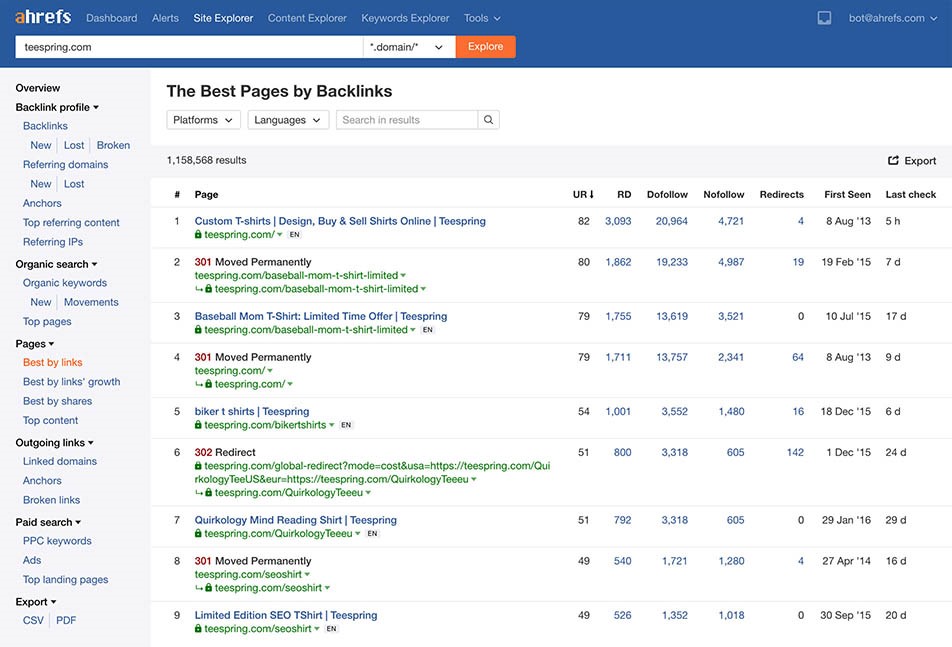Table of Contents
Dominate Your Niche: Proven Strategies for Optimizing SEO for Niche Markets
Optimizing SEO for niche markets has become difficult with the diversification of niches. Targeting specific consumers and addressing their needs is what “optimizing SEO for niche markets” is all about. Focusing on a niche market lets you offer a product or service that others may overlook. It can lead to less competition. Additionally, working with a smaller audience means you spend less on marketing. However, the problem is to use marketing effort to reach your niche-specific audience. Which is quite difficult. This is why many digital marketers fail to build their online presence. But what exactly is a niche market? How does SEO help bring niche markets to the front? Scroll to find out!
What is a niche market?
A niche market is a set of consumers with specific needs. Such needs remain unmet by mainstream services. It is a small group often overlooked by larger companies. The characteristics of niche markets are specificity, uniqueness, and a dedicated customer base. Simply put, a niche market is a specific market area. It caters to a group of people with specific needs or wants. Because of the diverse range of entrepreneurs on the internet, each must know how to stand out. Niche markets vary from technology, health, real estate to self-improvement and well-being. The right SEO strategy can help niche markets to grow and rank higher.
Why optimizing SEO for niche markets is important?
Search Engine Optimization (SEO) is a must for any niche market to create an online presence. Although it can take time to produce results. Optimizing SEO for niche markets can transform your business. The idea is to stand out! There is higher competition when you are not the only one offering your niche. Your first goal is to rank higher in web searches. Once you are through this barrier, you can achieve higher conversions and engagement. For example, you are in the chocolate industry. You will use precise SEO terms to reach a greater audience of this niche. To find and use a helpful chocolate industry SEO strategy will take time. But nothing is impossible! You will reap the fruit of your efforts in days, weeks, or even months later! The question still lingers, how SEO can help optimize your niche? Read on to find out!
Specialized Strategies for Optimizing SEO in Niche Markets: Increase Traffic and Boost Conversions
While there is no single strategy for optimizing SEO for niche markets, the following methods will do wonders. In the long run, these strategies will make your niche stand out and generate traffic like never before! You need to pick and implement what works best for you. You can attract dedicated customers by tailoring your content to their needs and optimizing it for search engines. Structure your website to promote engagement and actively respond to your audience. You can foster a sense of community and establish trust and loyalty among your target market. Afterall, who doesn’t want to boost their niche on SERPs? The following are authentic strategies you can use to optimize your niche market.
Optimizing SEO for niche markets: Unlocking the Secrets to Top Search Engine Rankings.
1. Keyword Research is the key to higher conversions.
Targeted keywords are more likely to cause people to search for niche products or services. Long tail keywords can reach a specific audience and lead to greater conversion. But this strategy alone will not rank your niche on SERPs. Once you define your keyword and are ready to put it in place, add it in the page title. Craft it in a way that Google displays it under 65 characters. Add your keyword in the meta description in the beginning to influence clicks. The main body of your content is the powerhouse for SEO. Make sure you incorporate keywords throughout but don’t overdo it. Another important part is the header (H1, H2) where you must add your keyword.
Moreover, the URL of your page tells Google what your page is about. It is an efficient SEO technique to add your keyword in the URL. Lastly, you must add your keyword in the images too. Google analyzes the image alt text. It serves as a description for visually impaired users to gain insight into a webpage’s content and subject matter.
2. Produce Catchy Content
Webpages that provide high-quality content outperform those that do not. You may do this by opening a blog, publishing helpful articles, or combining the two. The research you conduct determines your market’s search behavior. It gives you an idea of what inspires them. Begin by generating valuable articles that answer future risks in your area. Try expanding other forms like films and graphics. This material will help you establish a profile and may also help you gain links from reputable websites. Focus on readability by adding keywords and keeping shorter sentences. The goal is to attract readers and let them stay on the page. This is how your niche-specific optimization will skyrocket.
However, even with the right keyword and content, you may not engage users unless you make it catchy. Add images and infographics to make your content creative and engaging. You should make an instructional video if your content comprises a how-to article. Don’t just tell, show!
3. Analyze your content with SEO tools.
Optimizing SEO for niche markets is incomplete unless you run an excellent analytical tool. You need to test the usability and readability of your website to generate more traffic. Determine if your content is manageable and contains elements like page speed, sustainability, and XML sitemap. To track your website’s progress, you can use Google Analytics to ensure your technical SEO is on point! To kick-start, you must Site Audit to produce better results. For example, DeepCrawl (https://www.lumar.io/) create a cloud-based website crawler that helps websites use SEO audit tools. You can use it for better accessibility and efficiency besides Google Analytics.
Website loading speed can greatly affect your SEO results. Since potential customers may leave a website that takes too long to load. This problem can also impact your search engine ranking. To improve page speed, consider implementing a high-performance hosting solution. Also, eliminate any unnecessary elements on your website. For example, Forbes ranker Bluehost as the best hosting solution https://www.forbes.com/advisor/business/software/best-web-hosting-services/. It also provides free SSL certificate, providing double security to your website. Google favors websites that use SSL encryption in search results. As the search engine prefers secure sites over unsecure ones.
Optimizing SEO for niche markets include many elements. Technical SEO is vital like XML sitemaps, mobile-friendliness, crawl errors, and keyword specificity. Ensure that you optimize all parts and monitor your website’s performance progress.
4. Your backlinks are the backbone to optimize your niche.
Who likes spammy links that make their website’s ranking drop? No one. Link profile is an essential factor for optimizing SEO for niche markets. It refers to the number and quality of backlinks pointing to your website. A strong link profile can help improve your website’s visibility and credibility in search engines. It makes it more likely to rank well for relevant keywords. Backlinks are important because they signal to search engines that other websites consider your content valuable. The more high-quality backlinks your website has, the more authoritative it is. It leads to better rankings and more traffic. You can use a tool like Semrush (https://www.semrush.com/.) to analyze your link profile. It tells the kind of links leading your website. It also helps build a powerful content strategy. You can remove irrelevant links through the Google Search Console to make your site look clean before building new links.

Source: https://attrock.com/blog/backlink-analysis-tools/#5_Ahrefs
To improve your link profile, you can:
- Create high-quality, informative content.
- Reach out to other websites in your niche market and ask for a link.
- Guest post on other websites in your niche market and include a link to your website.
- Make sure relevant directories and online communities list your website.
- Run a link building campaign to get backlinks.
A strong link profile can take time to build. But it is an essential part of SEO optimization for niche markets. Creating a solid link profile can improve your website’s visibility and credibility in search engines.
5. Your competitors are a ladder to higher ranking.
Even though you may be the only one in your niche business, you will still compete with people searching for keywords related to your niche. You can check your website’s work by looking at the Google Analytics data. Researching your search competition can help optimize your niche market. It provides valuable insights into the strategies and tactics that work for your competitors. You can use this information to identify areas lacking your website. Additionally, it can make improvements. By researching your competition, you can:
- Identify keywords and phrases that drive traffic to your competitors’ websites.
- Understand the types of content that resonate with your target audience.
- Learn about the backlinks pointing to your competitors’ websites. And identify opportunities to build similar links.
- Understand the user experience and design elements that work for your competitors. Do it while adjusting your website.
- Identify gaps in the market that you can fill with your content.
- Understand where your competitors are advertising. And potentially identify new opportunities for your advertising campaigns.
Optimizing SEO for niche markets requires understanding your competing sites. Even the strongest email marketing campaigns, blog articles, or affiliate programs may not increase your SEO ranking. If your rivals outperform you, there is little chance you will rank higher. But you don’t want to waste time following every Google trend. Therefore, it’s important to know that the companies you’re competing with are successful in your industry.
Other businesses in your niche may rank on top of the search results for keywords related to your business. But for different reasons. Even though that is the case, you should still look at their website. Their content and how they use SEO to understand how they got there will help you. You should consider many elements, like how fast their website is. How good the images are, how much content they have, and how relevant it is. Try to improve your website in every way possible to outperform them.
Moreover, you can use competitor analysis tools like Ahrefs (https://ahrefs.com/). It lets you check URL’s organic keywords. You also get a rough idea how much traffic the keyword generates on the competitor’s page.

Source: https://sproutsocial.com/insights/competitor-analysis-tools/
Conclusion
Working in a niche business is tricky and tiring as a digital marketer. With a small target audience, only a wise SEO strategy may help. With the right strategy and hard work, your business may bloom in no time. But optimizing SEO for niche markets is an essential element for higher conversion. To improve your online presence in your field, it is vital to start by researching the right keywords. Also, research your competitors. Make sure to create high-quality content to increase your chances of success.
In conclusion, optimizing SEO for niche markets is a powerful way to increase visibility, drive traffic, and boost conversions. Researching your target audience, using long-tail keywords, building high-quality backlinks is the key. Also, creating, and optimizing high-quality content, engaging with your audience, using local SEO, and using analytics. You can achieve success in even the most competitive niche markets. Start optimizing your SEO today and unlock the full potential of your niche business!





